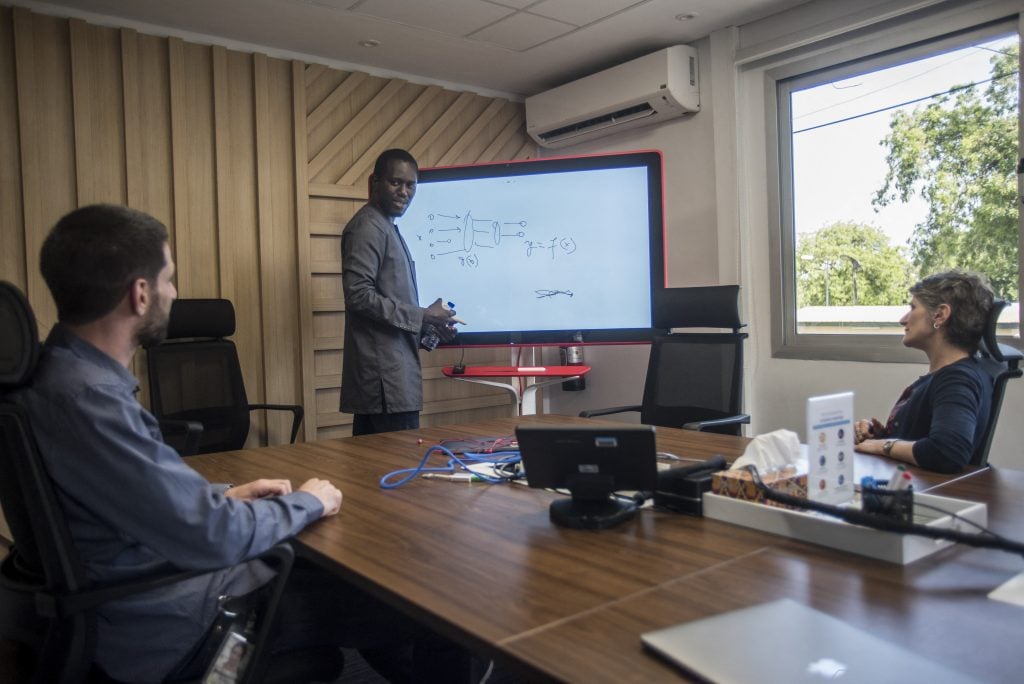The business process outsourcing industry, valued at more than $300bn globally according to market research firm Grant View Research, has traditionally been dominated by countries such as India, which offers lower labour costs than western markets alongside a vibrant digital ecosystem.
BPO involves hiring external service providers to handle specific business functions, allowing companies to focus on their core competencies. A growing number of African countries are now looking to attract tech companies that offer IT services, such as software development, to clients in developed markets.
The BPO Association of Kenya claims the country boasts almost two million digital workers. Speaking to African Business at the GITEX tech conference in Berlin, Kenya’s tech envoy, ambassador Philip Thigo, argued that the country’s digital connections put it in a strong position to serve as a tech hub, including as a BPO destination.
“We have good infrastructure,” he says. “We have six fibre cables coming in, we have a seventh one coming, so in terms of connectivity and infrastructure, we have good high-speed internet.”
The ambassador also highlights the country’s geographical position in a similar time zone to Europe and the Middle East, widespread English language fluency, and an abundance of green energy for data centres as key strengths.
“As we’re seeing the next evolution of business, which is AI, we’re one of the countries that is working on AI factories,” he says.
“We’re working with Nvidia and Cassava Technologies, for example, to put the first ever AI factory in the region that will serve the region.”
“Also, we have democracy,” adds Thigo. “So we don’t shut down the internet.”
The High Court of Kenya issued a ruling last week blocking the government and internet service providers from shutting down or disrupting internet access. The ruling is in force until the court resolves a case lodged by several NGOs relating to incidents when internet services were made unavailable during outbreaks of civil unrest last year.

Cost advantages
Another country emerging as a significant BPO player is Ghana. BPO contributes more than $200m to the West African nation’s economy, according to consulting firm BPO Search, with more than 6,000 people employed in the sector.
Matthew Darkwa, director of operations at Ghanaian IT service company AmaliTech, says Ghana has “all the resources” needed to serve as a BPO destination. For European companies, he tells us, outsourcing functions to Ghana can be a “cost effective” solution.
“The most important thing now is cost. Every company has to grow its digital components,” he says, adding that Europe’s ageing population means companies are forced to look overseas for access to talent.
Darkwa also emphasises that Ghana’s digital infrastructure provides a platform for the BPO industry to succeed.
“We’ve been running since 2019 and the internet has never been a problem,” he says.
Like Kenya, Ghana is served by multiple international fibreoptic cables; most recently, in late 2023, it was connected to Meta’s 2Africa cable, which links Africa to Europe, the Middle East and India. The increasing availability of satellite internet provided by the likes of Starlink also helps to plug any gaps.
With 150,000 graduates entering the labour market each year, Ghana has a supply of labour that puts it in a good position to compete in the BPO market, Darkwa says.
“We are growing. We are developing. The beauty about what we are doing is we’re not reinventing the wheel…We are the future.”
Crédito: Link de origem


